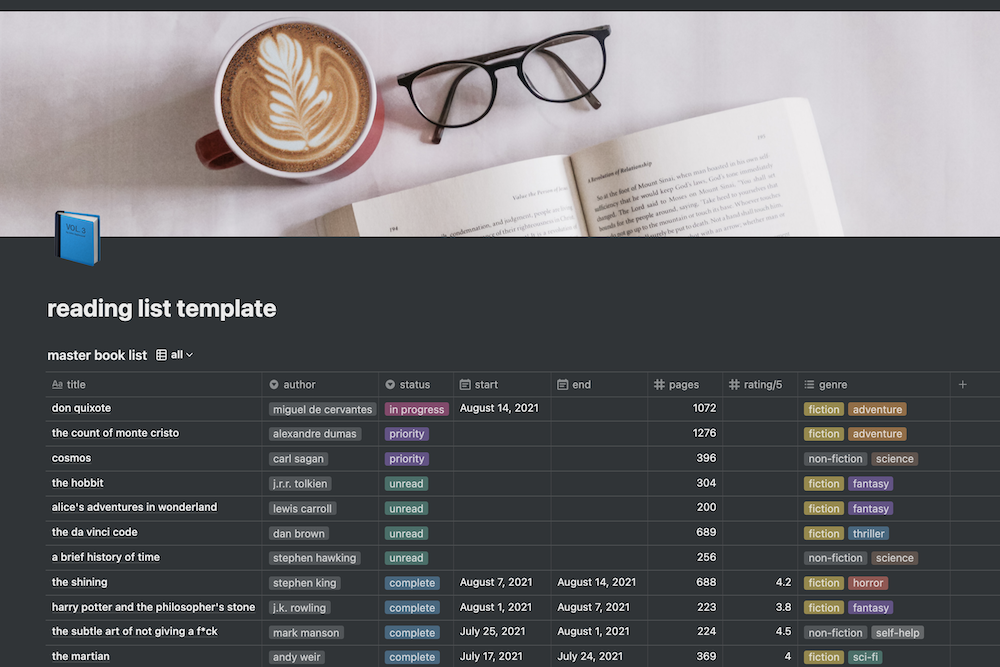what is a writing sprint?
A writing sprint is an exercise in which you write as many words as you can in a limited amount of time.
why do a writing sprint?
The purpose of a writing sprint is to encourage you to increase your word count and improve the speed and efficiency with which you write. For this reason, it is also called a word sprint. If you’re like me and you wish there were more hours in the day for writing—or you already write but want more time for things other than writing—then this is the technique for you.
Writing sprints are often associated with National Novel Writing Month (known affectionately to participants as NaNoWriMo), which is a challenge to write a novel in the month of November. That’s at least 50,000 words that need to be written from November 1st to 30th. This is certainly no small feat, so it makes sense that participants would encourage themselves to write as many words as possible per day in order to reach that goal.
why is word count the metric to go by?
Why not just write as fast as you can until the end of a scene or chapter? Well, this would give you no defined endpoint for time spent. Parkinson’s Law is revenant here:
Work expands to fill the time available for its completion.
People tend to do tasks at a pace which will enable them to fill the time that they allot for these tasks. And so, outside the confines of a time limit, you will probably write that scene or chapter until you absolutely must tend to other responsibilities, even if you could have conceivably finished the scene/chapter earlier.
By setting a time limit, you are forcing yourself to finish in that time. And maybe you won’t finish, but you can still get as far as you can so that you have time to do other life things (or another sprint, if you so desire).
Some of the tips below are borrowed from Chris Fox’s book, 5000 Words Per Hour, and some of them I have discovered on my own. I’m letting you know now because I will make some references to the book below and I will also comment on my general thoughts on it at the end of the post.
10 tips for a successful writing sprint
1. Prepare beforehand (or don’t).
If you prepare for your writing sprint in advance, you’ll have a direction to write in. Your preparations need not be extensive. It can consist of reviewing something you’re currently working on, a new idea, or a writing prompt. You’ll be far less likely to get stuck if you have an idea of what you want to write.
However, you can also choose not to prepare. You could start by simply writing about the fact that you don’t know what to write. Through a stream of consciousness, follow wherever your mind takes you—it might give you some interesting results!
2. Remove distractions.
Turn off your phone or switch it to silent. Exit out of Internet browsers. Open a minimalistic word-processing program. Check anything you need to check (text messages, emails) and do anything you need to do (bathroom break, snack), before you get started.
Make sure that you won’t be interrupted during your sprint. If necessary, let other members of your household know that you will be unavailable for the next little while and that you are not to be disturbed. Or you can go to a different place (coffee shop, park bench) where you know that no one will bother you.
3. Set a timer.
You can have the timer visible on your screen or on the desk beside you, or you can have it somewhere else in the room. I prefer my timer not be visible as it functions as another distraction for me.
Some people like having the timer in their field of view because it reminds them that time is ticking away and that they need to write as much as they can before the alarm goes off. Decide what will work best for you.
4. Write the whole time and do NOT stop to edit.
A quote from Jodie Picoult goes like this:
You can always edit a bad page. You can't edit a blank page.
Writing from a blank page, essentially making something from nothing, is arguably harder than building from something that’s already there. Brains are for coming up with ideas, not storing ideas. As David Allen write in Getting Things Done:
Your mind is for having ideas, not holding them.
Get your ideas down on paper first, and then you can worry about how things are organized and how they sound. Once you have some bones to work with, it’s easier to flesh it out.
You can do editing sprints once you have something to edit (details near the end of this post).
If you really really want to edit something and can’t push yourself forward without doing something about it, continue typing and just write a little reminder for yourself to tweak whatever it is that needs tweaking. Then after your sprint, when you go back to edit, you’ll have a chance to make those changes.
5. Take breaks between sprints.
The human attention span has limitations. Every writer has a finite stamina, though this may differ between individuals. It is important to give your mind (and fingers!) a rest so that you can start fresh on your next sprint.
I wrote a post a few weeks ago which may give you some ideas about what to do during your break (these are also great if you feel like you’re in a motivational slump or you’re facing writer’s block!).
6. If this is your first ever sprint, start small.
It can be daunting to start this process for the first time. Maybe you have trouble writing lots of words at once, or you have trouble keeping your inner editor in check. That’s okay! Don’t let that keep you from sprinting. You can build endurance over time. But for now, start with micro-sprints. Regular sprints are anywhere between 30-90min with a bit of wiggle room on either side, but you can totally do a sprint that’s 5-10min. You can even use a pomodoro timer, if you want (typically 25 minutes on, 5 minutes off).
7. Track your progress over time.
Here are the things Chris Fox recommends you keep track of:
- Date
- Type (writing sprint, editing sprint, etc.)
- Start time
- Sprint duration (in minutes)
- Starting count
- Ending count
- Daily count ([ending count] – [starting count])
- Words per hour, or WPH ([daily count] x 60/[sprint duration])
- Monthly words (sum of all daily counts for the month)
By tracking your word counts, you will see improvements in your writing efficiency. This will motivate you to break your own records.
Chris Fox has an excel sheet which calculates these metrics for you. He also used to have an app that would help you keep track of your word counts, called 5KWPH, but it is now dead (Chris, if you’re reading this, please please bring the app back).
8. Reward yourself for setting new records.
Set up achievements for yourself (e.g. 3000 words per day for 3 days, or 20,000 words sprinted in total) and reward yourself when you attain them. This will function as positive reinforcement, which will motivate you to break new records and reach new milestones.
9. Experiment with different durations and times of day.
Some of you might find that you can only write for 30 minutes at a time before feeling burnt out, while others may find that 50 minutes hits that sweet spot. It all depends on what works for you, and there isn’t really a wrong way of doing this as long as it’s working for you.
In addition, some of you might find that you write faster in the mornings, while others work best in the dead of night. Everyone is different, so take some time to experiment and find the best time of day to optimize your sprints.
10. If you are a slow typist, practice typing.
I know that not everyone types when writing (the magic of pen-to-paper and all that), but most of us do. If you are planning on typing your sprint and you happen to be a slow typer, practice typing. Both accuracy and speed are important, but especially accuracy when starting out. The fewer mistakes you make, the more words you will get down since the slowest part of typing is going back to fix mistakes (which you shouldn’t even be doing in your sprint anyway!). It will be easier to resist the temptation to fix mistakes when you make fewer of them. I wrote a post with some tips on improving your typing speed, so I encourage you to check it out!
caution:
Writing sprints should improve the volume of your output (the quantity, you could say), but might not improve the quality of your work without a little bit of extra effort. It is important to read your work critically and identify repetitive mistakes. You can even have someone else read your writing if you are comfortable with that. Be on the lookout for things like using the same vocabulary over and over, or not varying your sentence structure, or dialogue attribution (he/she/they said, stated, whined, grumbled, etc.) that lacks diversity. Once you are aware of these blunders, you will be more mindful and avoid them in your next sprint. Soon you won’t have to remind yourself—avoiding these mistakes will come naturally.
a few other notes:
editing sprints
Once you have something written, you can also do what Chris Fox calls editing sprints. Now is the time to edit to your heart’s content (within the confines of a pre-determined time slot). You still set a timer, but instead of writing brand new words, you read through something you have previously written and make any changes you deem necessary. You might add a new word here and there, but the focus should be on refinement. You can also keep track of how many words you edit. This will no doubt be many more words than you could hope to write in the same amount of time. Therefore, Chris Fox says that you should differentiate between writing sprints and editing sprints so that you don’t compare apples to oranges.
social sprints
You can try doing writing sprints with other writers. Personally I can’t write with others because I find it too distracting, but some find it helpful to do sprints with others because it keeps both you and them accountable. This need not be in person; you can announce your sprint on social media and invite others to join you. At the end, you can share your word counts in the comments. Knowing that you will be sharing your word count publicly may also pressure you (in a good way) to write more words than you would have otherwise.
5000 Words Per Hour
If you liked this blog post, I would recommend reading Chris Fox’s 5000 Words Per Hour. It’s a fairly short read (about 150 pages) and gets straight to the point—not a whole lot of anecdotes which is something I really appreciated, especially after Bradbury’s Zen in the Art of Writing which is absolutely rife with them. Don’t get me wrong, a good anecdote is nice to break things up, but when it’s the lessons you’re really after, there can be a lot to sift through.
Each chapter covers a piece of advice about how to approach writing sprints and also shares an exercise designed to help you implement that piece of advice into your sprints. I would highly recommend it.
Which tip did you find most useful?
As always, feel free to discuss in the comments below or reach out via the contact form. I’d love to hear from you!
If you enjoyed this post, please consider subscribing to my email list by clicking the button below:




